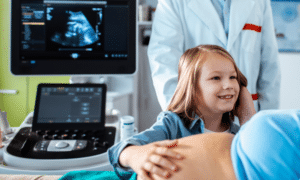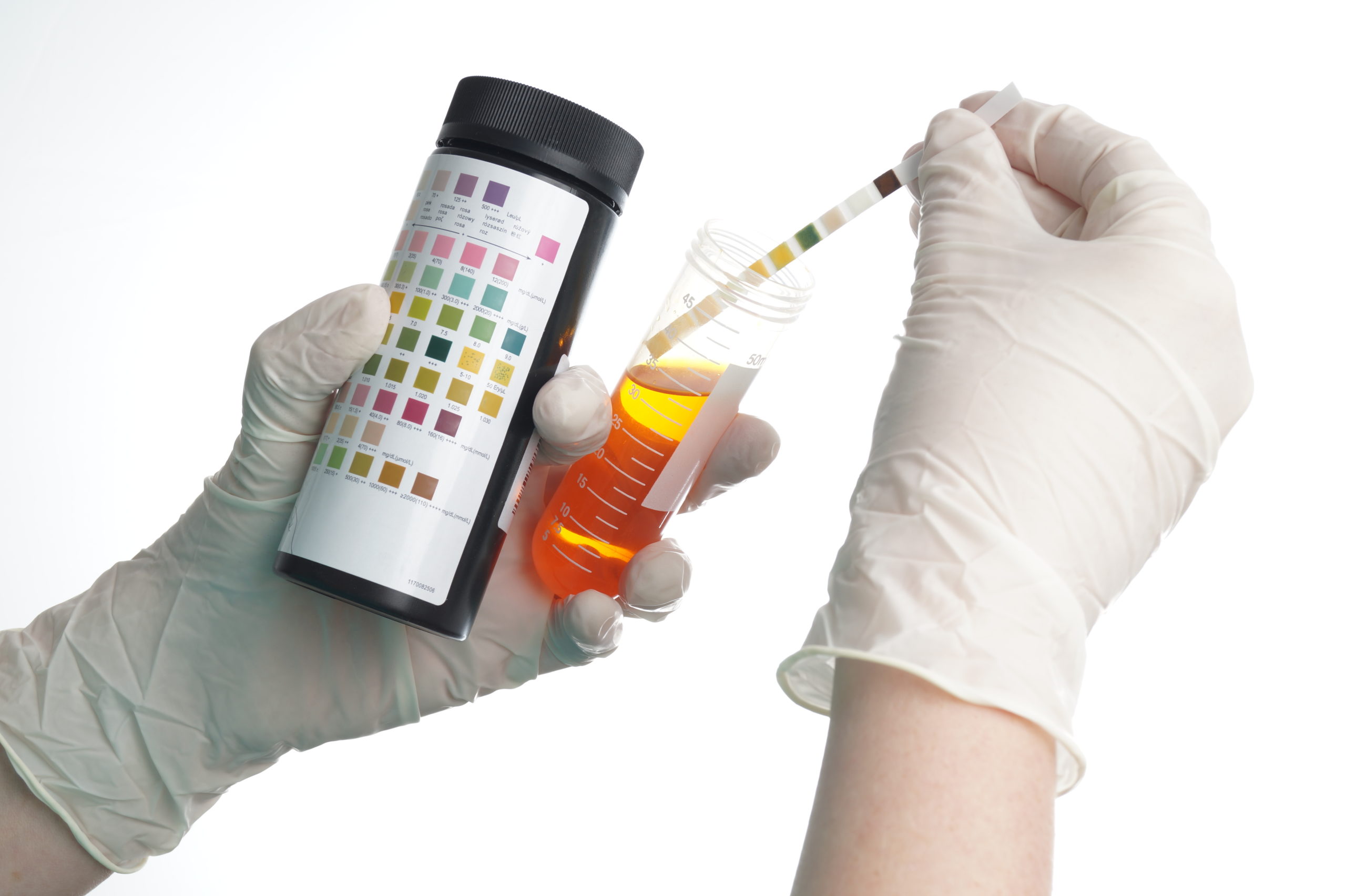Signs of Pregnancy Presumptive, Probable, Positive Full Fact Sheet
Pregnancy is a beautiful journey that is filled with joy, excitement, and anticipation for the arrival of a new life. However, before a woman can fully embrace the journey, she needs to confirm her pregnancy. There are three different categories of signs of pregnancy, namely, presumptive, probable, and positive.
In this article, we will explore the full fact sheet on the signs of pregnancy, which will help women to recognize and understand the changes in their body during this special time. Whether you are trying to conceive or have already confirmed your pregnancy, this guide will provide valuable information on the different signs of pregnancy.
The time of pregnancy can be very nerve-wracking for most women. During this period, a woman is puzzled with multiple factors playing in her head, especially if she was trying to get pregnant. Pregnancy is a very complicated phenomenon further complicated by the signs and symptoms of it.
Unless a clinical investigation has not been performed, it is tough to tell a woman is pregnant in the early stages of pregnancy just on the basis of the changes she has experienced. But to some extent, a few signs can hint towards a woman being pregnant. Nevertheless, the symptoms have to be strictly observed to tell for a confirmed pregnancy.
The signs of pregnancy are grouped accordingly. There are presumptive signs, probable signs, and positive signs.
Presumptive signs of pregnancy refer to physical signs that may indicate a woman is pregnant. These can include missed periods, nausea, breast tenderness and fatigue.
Probable signs are those tests and procedures that provide evidence of an intrauterine pregnancy or an ectopic pregnancy. This includes a pelvic exam to check for uterine enlargement, a transvaginal ultrasound to check for the presence of a gestational sac in the uterus or an ectopic pregnancy, and blood tests to measure hormone levels such as hCG and progesterone.
Positive signs of pregnancy are those that indicate without doubt that a woman is pregnant. This includes fetal heart tones heard through a Doppler device, observed movement of the fetus on ultrasound, and positive home pregnancy tests.
Overall, any woman experiencing signs of pregnancy should seek medical advice to confirm their status. A healthcare provider can evaluate the presumptive, probable, and positive signs to make a definitive pregnancy diagnosis.
Presumptive Signs Of Pregnancy:
Presumptive signs are referred to those symptoms that vaguely point towards pregnancy but are not enough to confirm it.

One of the most common presumptive signs of pregnancy is a missed period. When a woman misses her period, it is usually the first sign that she might be pregnant. A missed period is often the first sign of pregnancy that a woman notices. However, not all women experience a missed period when they are pregnant. Other presumptive signs of pregnancy include changes in nipple color and size, changes in the amount of vaginal discharge, changes in the way food tastes or smells, breast changes, such as swelling and tenderness, morning sickness, frequent urination, and fatigue.
Presumptive signs of pregnancy are changes in the body that suggest a woman is pregnant, even though she has not had a positive pregnancy test. Presumptive signs of pregnancy can vary from woman to woman and even from pregnancy to pregnancy. However, there are some presumptive signs of pregnancy that are commonly reported by women.
If you are experiencing any of these presumptive signs of pregnancy, it is a good idea to take a home pregnancy test to confirm whether or not you are pregnant. If the test is positive, make an appointment with your doctor to discuss your options and begin prenatal care.
Presumptive signs can be very tricky. This is because all the signs under this heading are the ones that can happen in most other conditions, too, and are not necessarily unique to pregnancy. Such signs may include:
-
Missed periods
A missed or late period is a very common and one of the first few signs of pregnancy. However, it does not confirm a pregnancy mainly because a woman can miss her periods for several other reasons, as well. A missed period can be confusing for a woman who has irregular periods.
Similarly, a change in diet, routine, stress levels, and a disbalance in hormones can easily alter a woman’s period. And the fact that she may have gotten pregnant during this irregularity makes it even harder for the woman to tell that she is pregnant simply because she missed her period date.
Therefore, the woman must take a pregnancy test to rule out whether she is pregnant or not and should not rely on her periods even if she gets regular periods.
-
Nausea and vomiting
A very cardinal sign in early pregnancy is morning sickness. Yet again, a person may be nauseated and may vomit for multiple other reasons. It can be an upset stomach due to food poisoning, an unendurable pain, or something as common as motion sickness.
-
Breast Tenderness
Breast tenderness mainly occurs in the early weeks of pregnancy. A woman may experience fuller breasts along with diffused pain and sensitivity in her breasts when she is pregnant. Yet, the same phenomenon occurs when a woman has her premenstrual syndrome, her breasts may feel tender, and she may also have a tingling sensation.
-
Fatigue
Most women fatigue easily primarily because of the lack of proper diet, work stress, and inadequate nutrient intake. Likewise, most women are already anemic in their childbearing age, which makes them fatigue quickly. Therefore, even though most women experience more fatigue when they are pregnant, fatigue does not prove as a reliable sign of pregnancy.
-
Headache
A lot of factors can lead to a headache. Headache can be due to stress, neurological diseases, trauma, drug withdrawal, and many more. It is a widespread pain that most adult experience; hence, considering headache as a sign of pregnancy is not a wise decision.
-
Heartburn
A person may have heartburn due to indigestion or regurgitation problems. And even though heartburn happens very commonly in pregnancy, it is not the symptom that is enough to conclude that a woman is pregnant.
-
Shortness of breath
Most people with respiratory or cardiac diseases have to face shortness of breath. Even women who are anemic are experience shortness of breath very often.
Probable Signs Of Pregnancy:

Some of the most common probable signs of early pregnancy are:
- Feeling tired all the time
- Nausea and vomiting
- Frequent urination
- Changes in breasts, such as swelling or tenderness
- Feeling bloated
- Morning sickness
- Hunger more often
- Having to pee more often
If you are experiencing any of these symptoms, it is important to take a pregnancy test to confirm whether or not you are pregnant. If you are pregnant, it is important to start prenatal care as soon as possible to ensure a healthy pregnancy. Prenatal care includes things like seeing a doctor regularly, taking prenatal vitamins, and avoiding harmful substances.
If you are not pregnant, these symptoms could still be caused by other things, like an infection or even just stress. If you are concerned about any of these symptoms, please see your doctor for advice.
Probable signs of pregnancy mean that there are indications present for a possible pregnancy. These signs include:
If a woman finds her pregnancy test positive, then 90 percent chances are that she is pregnant. But the downside it, even a positive pregnancy test can be false. This is because the pregnancy test is based on a hormone that is made during pregnancy called Beta HCG. However, Beta HCG can be produced in other conditions where a woman will not be pregnant, yet her hormone levels will be high. Such a condition would include a tumor that provides high levels of beta HCG even when the woman is not pregnant. Therefore, a positive pregnancy test must be further confirmed.
-
Frequent Urination
As the fetus grows in the uterus, it puts pressure on the urinary bladder that urges the woman to go and pee more often than usual. This is one sign. But in other cases where a woman drinks a lot of water and urinates a lot is not a sign of pregnancy. Or, increased urination can also indicate urinary tract infection, which is a prevalent form of a disease.
-
Light Spotting
Commonly confused with periods, implantation of a fertilized egg often presents with light spotting or bleeding in case a woman is pregnant. But this is not entirely a sign of pregnancy because a woman struggling with period irregularity can experience the same without getting pregnant.
-
Skin Pigmentation
Apart from the acne and regular skin pigmentation that occurs in a woman, a sign called ‘Chadwick’s sign’ happens in pregnant women where the vulva and the cervix turn bluish due to the increased blood flow to these areas during pregnancy.
-
Uterine Cramping
Uterine cramping readily occurs when a woman is pregnant. A false contraction is known as ‘Braxton Hicks’ frequently occurs as early as the 16th week of pregnancy. Since uterine cramping also commonly occurs during the periods, it can easily confuse a person, whether it is pregnancy cramps or period cramps.
Positive signs of pregnancy:
Once a woman suspects she may be pregnant, she begins looking for any and all clues that confirm her suspicions. While some signs of pregnancy are more obvious than others, there are a number of positive indicators that can give a woman confidence that she is with a child.

In addition to physical symptoms, there are also a number of emotional changes that may occur during early pregnancy. Many women find that they experience an increase in energy, while others may feel more emotional or weepy. Many women also report a heightened sense of smell or taste during early pregnancy.
If a woman suspects she may be pregnant, she should consult with her physician to get a definitive answer. While home pregnancy tests are fairly accurate, a doctor can perform additional tests to ensure accuracy. If a woman is confirmed to be pregnant, her doctor will provide guidance on prenatal care and what to expect during the nine months of pregnancy.
While not everyone experiences all of the above signs of early pregnancy, a combination of several is usually a good indication that a woman is pregnant. If a woman has any concerns about her health or the health of her unborn child, she should consult with her doctor. Pregnancy is a time of great change and new beginnings, and with proper care, both mother and child can enjoy a healthy pregnancy.
Positive signs of pregnancy are those signs that confirm pregnancy a hundred percent leaving no doubt. Such definite signs include:
-
Fetal heart sound
A fetal heart sound can be detected as early as the 8th week of pregnancy, and there can be no mistake with this. A positive heart sound confirms the presence of a fetus; hence, a woman is said to be definitely pregnant.
-
Fetal presence on an ultrasound

How Early Can I Take A Pregnancy Test After Ovulation Complete Fact Sheet
References:





3 Replies to “Signs of Pregnancy Presumptive Probable Positive”